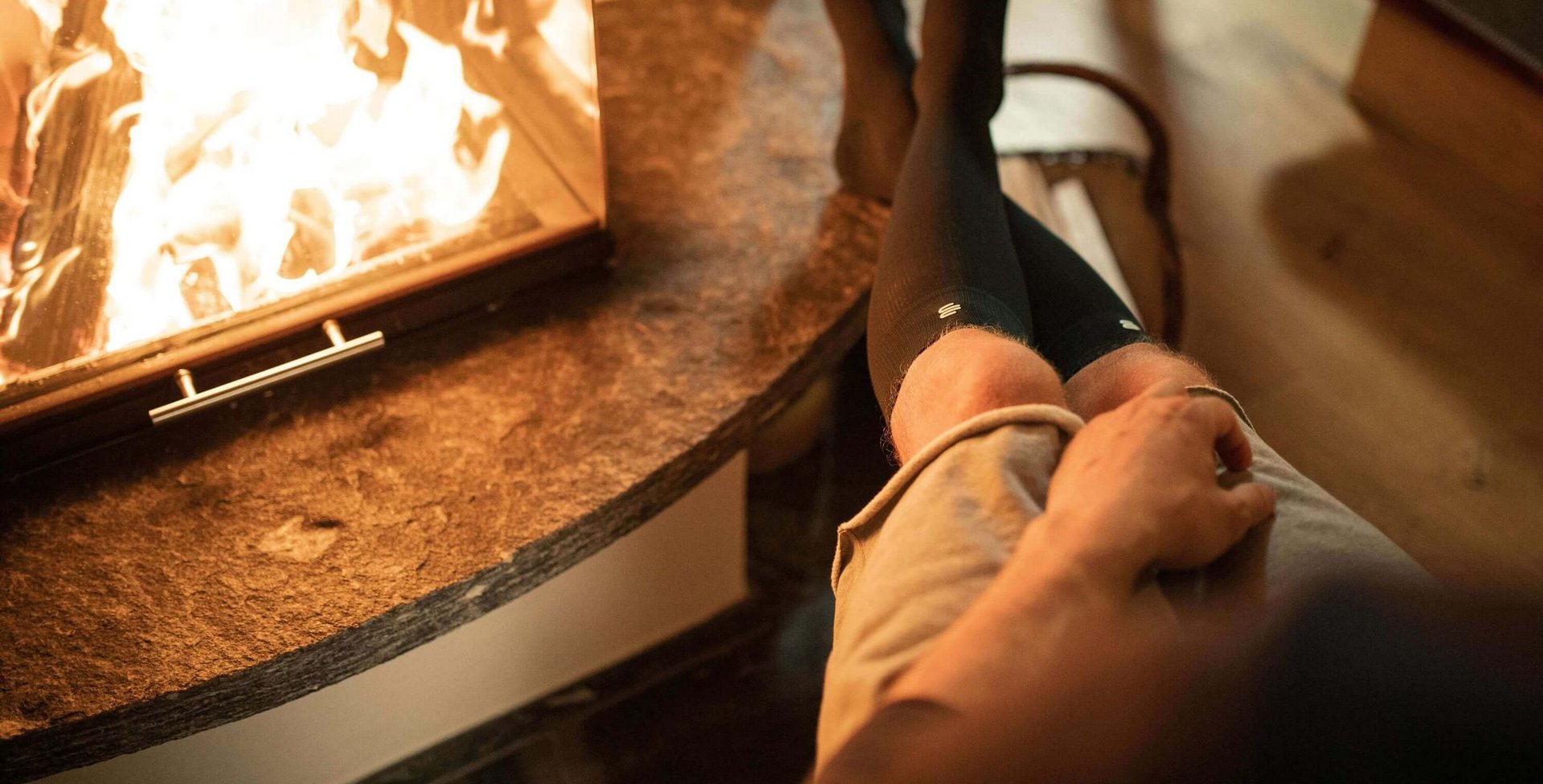
How to deal with cold feet
Why your feet are cold all the time and what you can do about it
As soon as the temperature drops, it’s happening again: your feet feel freezing. For many people, however, this isn’t just the case in winter: their feet are always cold. There can be many causes of such “icy feet”. Find out more in our guide and discover what you can do about cold feet.
Cold feet: table of content
Those who wear thin socks in winter, traipsing through the ice and snow in sneakers, shouldn’t be surprised about having cold feet. But it’s different when your feet are always cold. Then the cold doesn’t just take over the whole foot from the toes to the heel, but it also affects your entire well-being. It’s a particularly unpleasant sensation when you get into bed at night and your feet simply won’t get warm.
Reasons for feet getting cold
Why is it the feet that get cold first? The answer is easy: your body needs a certain temperature to keep all the processes going. But keeping the whole body warm without help no longer works when the ambient temperature drops too low. The body then focuses on its center, ensuring that the vital organs are protected so their functions can be maintained. In turn, this means that there is not much warmth left for the extremities – then the feet suffer first and get cold. Women in particular are affected by cold feet and will usually get out their thick woolly socks as early as the beginning of fall. One reason being that, compared to men, they have less heat-generating muscle mass. Plus, their skin is often thinner and their blood pressure lower.

Cold feet in winter are generally quite common. If it’s damp as well, the cold will creep into the feet particularly quickly. If you wear shoes with a thin sole made of thin material more suitable for the summer, your feet will get cold even more quickly. Also be careful with shoes that are too tight: they impair circulation, which can also lead to your feet getting cold.
Your feet sweating a lot can be a reason as well: sweat makes your socks damp, and this moisture cools down your feet.
Little activity ultimately also results in the circulation not being sufficient to keep your feet warm.
Cold feet all the time: possible medical causes
However, it’s not always low temperatures and unsuitable clothing that cause your feet to get cold. Sometimes, there is a medical reason.

We’ve already referred to it when mentioning “tight shoes” and “little activity”: circulation. If your feet aren’t supplied with enough blood, your body won’t be able to keep them warm. This is the case with low blood pressure, for example, which can be caused by weak veins. Discuss with your physician whether you should wear medical compression stockings. These will support your veins.
In addition to a venous disorder, unbalanced hormone levels or certain medication can negatively influence circulation. The same applies to stress and psychological conditions. In general, it’s true to say that an unhealthy lifestyle – with smoking, little activity, or a lack of sleep – can impair circulation and therefore promote cold feet.
Ask your physician for advice
All medical questions are best answered by a physician. If your feet are always cold and you think one of the reasons above may apply to you, speak to a physician. A physician can clarify your suspicion, recommend the appropriate measure, and prescribe a medical aid, such as compression stockings, if applicable.
Our tips to combat cold feet
There are many aspects you can work on to combat cold feet. It will depend on your personal constitution, of course, which are most effective for you, as well as on your current lifestyle and whether your cold feet have a medical cause. In most cases, a combination of different actions is most promising. Try these tips:



